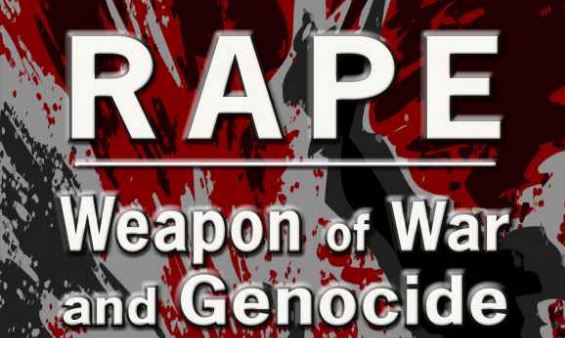By Joyce J Wangui
Observers say the verdict sets a legal precedent that impunity on sexual violence cannot be tolerated and that the long road it has taken victims of sexual crimes to reach this point-is indeed a moment of reckoning for the ICC and victims
International Criminal Court Chief Prosecutor Fatou Bensouda says the guilt judgment against Jean-Pierre Bemba on rape is a step towards addressing sexual violence mainly used as a weapon in conflict areas.
“This case has highlighted the critical need to eradicate sexual and gender-based crimes as weapons in conflict,” she said after the judgment in March.
Observers say the verdict sets a legal precedent that impunity on sexual violence cannot be tolerated and that the long road it has taken victims of sexual crimes to reach this point-is indeed a moment of reckoning for the ICC and victims respectively.
Eithne Dowds, a PhD researcher at the School of Law at Queen’s University Belfast, Ireland, specialising in the definitional parameters of the crime of rape at the International Criminal Court says Bemba judgment sends an important message in terms of holding individuals accountable for crimes of sexual violence and is in direct contrast to the historical narrative that categorised rape and sexual violence as spoils of war.
“I think the Office of The Prosecutor (OTP) is committed to ending impunity for crimes of sexual violence, demonstrated in the Office of the Prosecutor’s Policy Paper on Sexual and Gender-Based Crimes,” says Dowds.
She says she is cautious in her optimism and thinks that the ICC and the OTP need to continue rigorously investigating crimes of sexual violence and cannot become complacent.
Observers say the OTP has a good policy against crimes of sexual and gender based violence. It simply needs to implement it with tenacity and creativity.
“The OTP cannot always say that it does not have sufficient resources to open new cases,” says David Donat Cattin of the Parliamentarians for Global Action (PGA) based in New York.
Carla Ferstman, director of REDRESS, a human rights organisation that helps torture survivors obtain justice and says Bemba’s conviction is an important statement that impunity for sexual crimes will not be tolerated, but that must be accompanied by additional steps to address the rampant impunity that has allowed perpetrators to perpetuate their abuses.”
Dowds says the reasoning of the court should be utilised to help inform the internal criminal or disciplinary measures used by military commanders. “There needs to be more training on these crimes, more awareness around the way in which soldiers are expected to treat the civilian population, more express disciplinary measures and clear examples of behaviour that will not be tolerated,” she says. While this is only one step, she says it has the potential to have a far reaching effect. Dowds concludes that international criminal law can only do so much; any criminal justice response must be supported with other remedies such as appropriate medical care, shelters, financial support, and resettlements.
Advocacy group Physicians for Human Rights says the culture of impunity is ending and the stigma and shame of this crime (rape) ‘is moving where it belongs; to the perpetrator’.
UK’s Prime Minister Special Representative on preventing sexual violence, Joyce Anelay says the judgement shows sexual violence in conflict will not go unpunished.
Hollywood movie star Angelina Jolie Pitt, a big campaigner against sexual violence also wrote in a statement that: “My thoughts and my admiration go out to the survivors and witnesses who bravely testified in this case and contributed to this landmark conviction. I hope it will serve as a warning to perpetrators.”
Carrie Comer, of the International Federation for Human Rights, wrote: “A historic moment for victims of such unspeakable atrocities which sends a strong message from ICC judges that commanders must prevent and punish war crimes.”
In a telephone interview, a Kisumu based lawyer, Morgan Green told Journalists For Justice (http://jfjustice.net/en) that Bemba’s verdict sends a message that Africa can still count on the institution of court to deliver justice.
Bemba could face up to a whole-life in prison, but in principle will serve a maximum sentence of 30 years, which may be compounded with fines and the confiscation of property and assets. Bemba’s defence and the prosecutor are entitled to appeal the verdict as well as the sentence when they are handed down.
The guilty verdict unlocks the procedure for victims to apply for reparations. In fact, the ICC affords victims the right to obtain reparation for the harm suffered as a consequence of the crimes perpetrated by a convicted individual. The Trial Chamber will call upon the various parties to submit observations and may organise reparation hearings, before handing down reparation orders to be met by Bemba.
Read More on: How did rape become a weapon of war?







